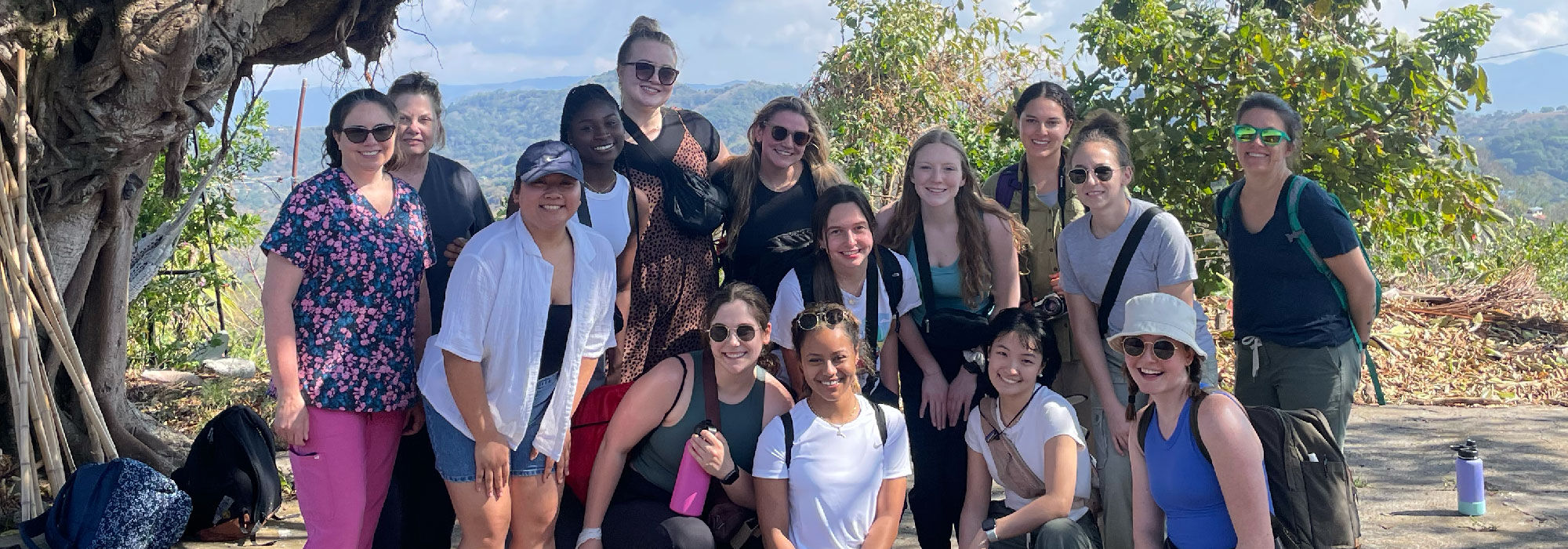
Becoming Global Citizens
On the road, above: Mia Cervenka, Ruth Tesfay, Yang Du, Sarah Harbert, Amanda Desamito, Gabriella Gruber, Shana Miller, Stephanie Justice, Jennifer Forbush, Faith Shielu, Makayla Allen, Nichelle Bowles, Katie Hadley, Jadyn Dawson and Jenny Bickley take a break.
by Susan Neale
Students develop a perspective of the world and their part in it
In March, a group of 11 BSN seniors, two faculty members and a DNP student traveled to San José, Costa Rica, over spring break on a College of Nursing education abroad global experience. Through this program, groups of our traditional BSN students led by faculty mentors travel to a wide range of overseas destinations to learn about key public health and nursing challenges and strengthen their ability to communicate with and care for patients from a different culture.
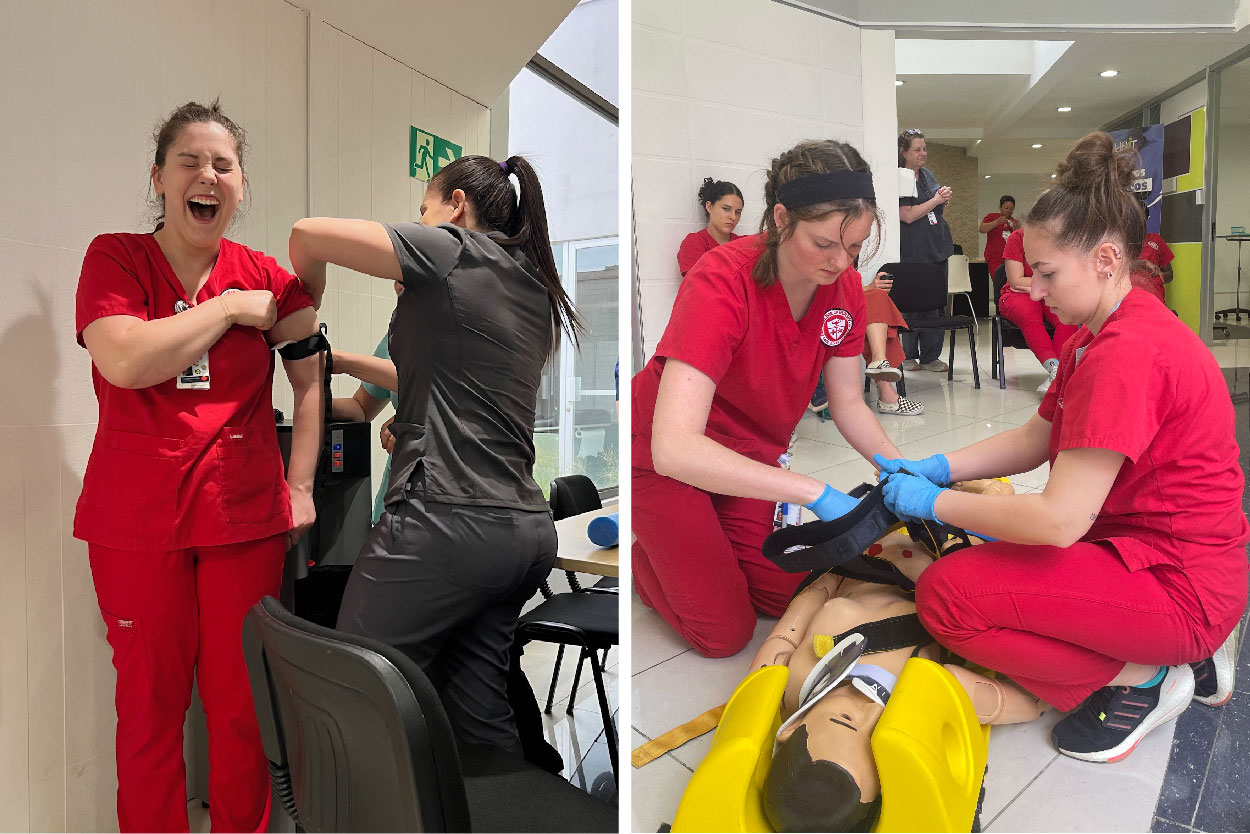
The communities they visit benefit as well. Global outreach leaders from the College of Nursing meet with community leaders far in advance to develop experiences that meet the community’s needs and our student’s learning objectives. In Costa Rica, students spent two days at a daycare center for urban children, providing requested basic screenings and healthcare. They worked at health fairs in open-air plazas and served as mentors to medical students during a simulation training program at Universidad San Judas Tadeo.
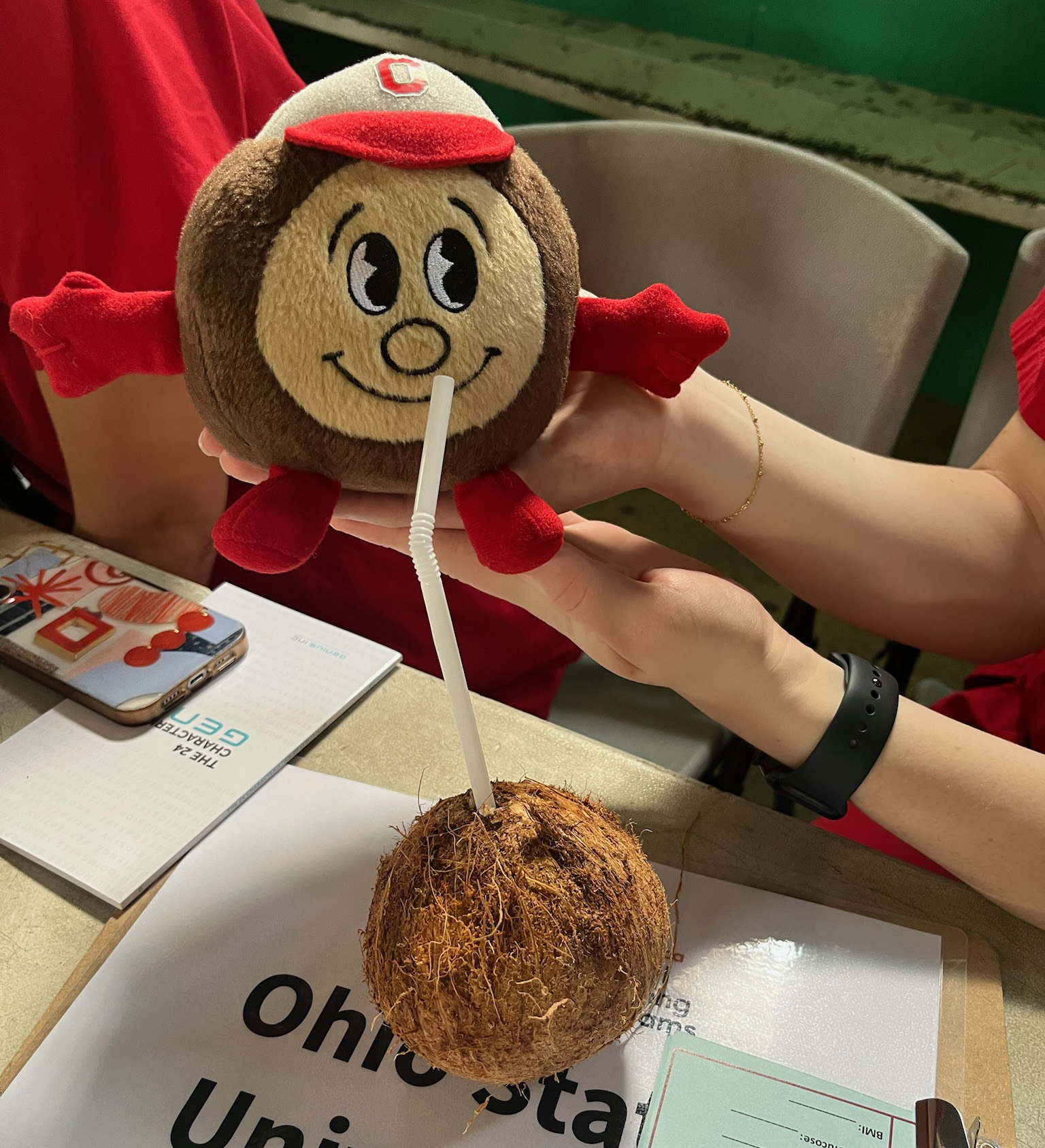
Before the trip to Costa Rica, Dianne Morrison-Beedy, PhD, RN, CGNC, FFNMRCSI, FNAP, FAANP, FAAN, the college’s chief global strategy officer and Stephen McGhee, DNP, RNT, FNAP, FFNMRCSI, FAAN, assistant dean of international education initiatives, filled us in on some of the challenges the students would face. “The environment is so different from anything many of our students have seen before … No air conditioning. It’s going to be hot. It’s a different experience than what you would get in Columbus, Ohio,” McGhee said. Besides dealing with a different climate, students would be working with people speaking a variety of languages in rural and urban settings with different cultural practices, diets and income levels. In addition, McGhee said, “the chronic diseases the students may come across won’t necessarily be the same as you’d see at the Wexner Medical Center.”
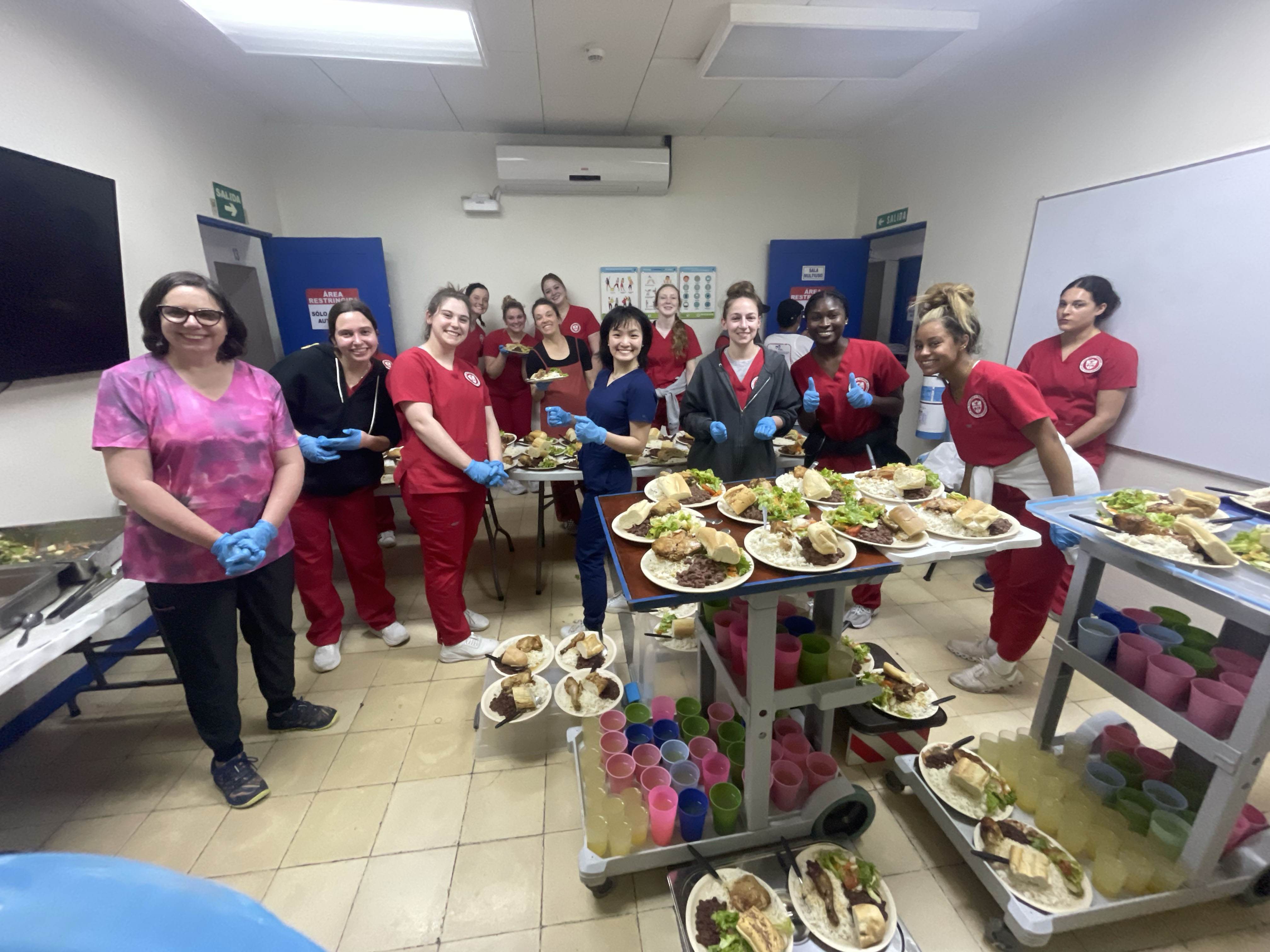
Solving problems and addressing new challenges away from the comfortable, resource-rich conditions of campus helps students develop critical thinking skills, Morrison-Beedy pointed out. “In these global experiences, you’ve got to be thinking on your feet, using your critical thinking skills … and say, ‘How can I apply what I know in a low-resource environment with a different culture, a different group of people with a different group of needs that I need to be sensitive to? How can I learn from this experience as well as give back to this experience?’ ” These skills will also help students in their future healthcare practices back in the United States as they work in new locations and with differing patient populations.
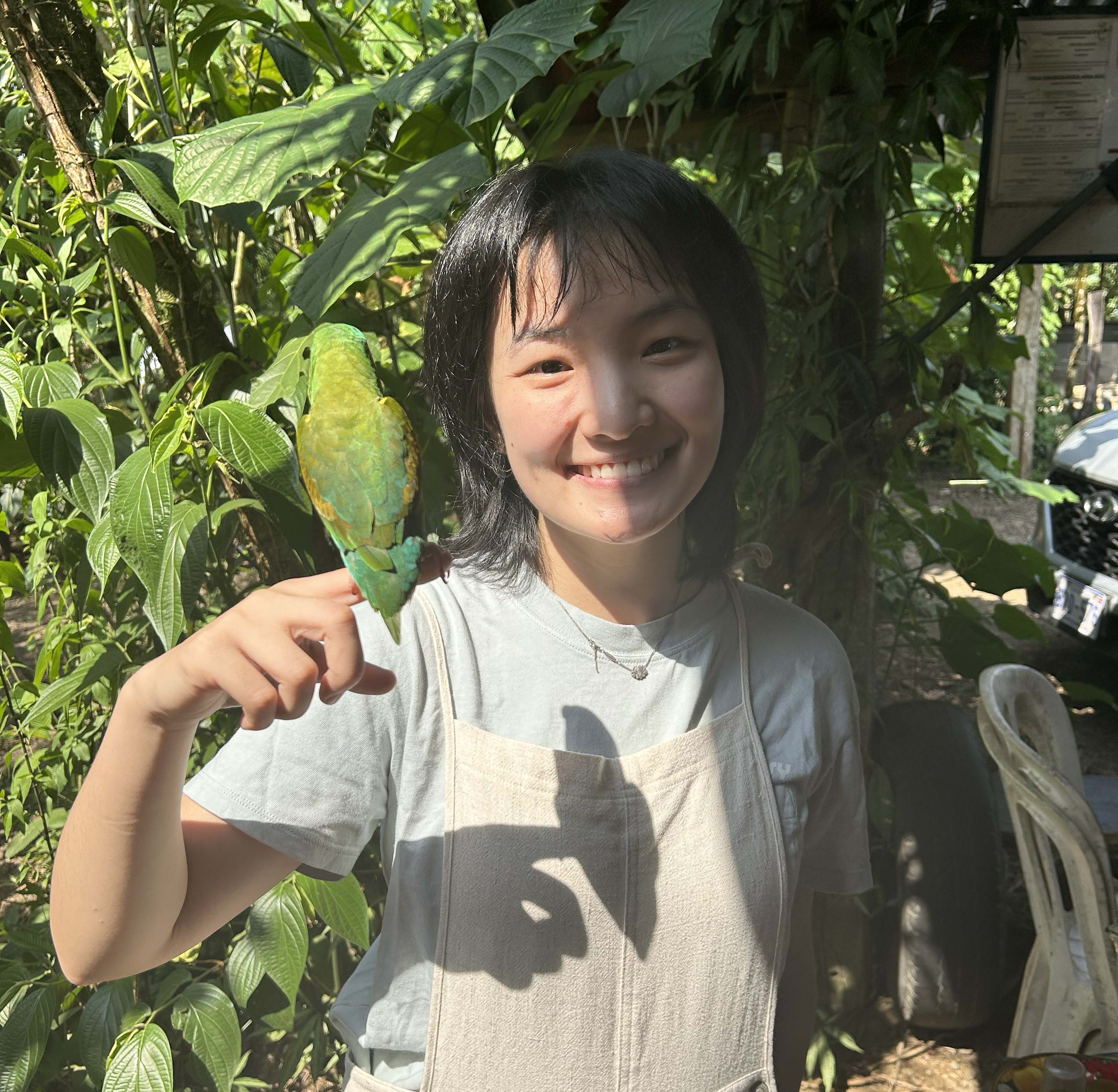
Besides building skills, students and faculty often form long-lasting friendships in places they’ve served, some of which lead to professional collaborations and an ongoing exchange of ideas. They may gain a new understanding about themselves, as well. As Morrison-Beedy said, “Global citizens really develop a perspective of the world and their part in the world.”
In this Issue
- Empowering Parents
- Small Town, Big Impact
- Take HEED!
- “She was my nurse!”
- Filling Ohio’s Workforce Needs
- Grants Roundup
- Sparking Innovation
- Of Science and Service
- Becoming Global Citizens
- Camping with Emily Gee
- Alumni in Action: Shining a Light
- From Farm Girl to Rural NP
- Meet Kristen Hill
- Move Your Way to Better Health
